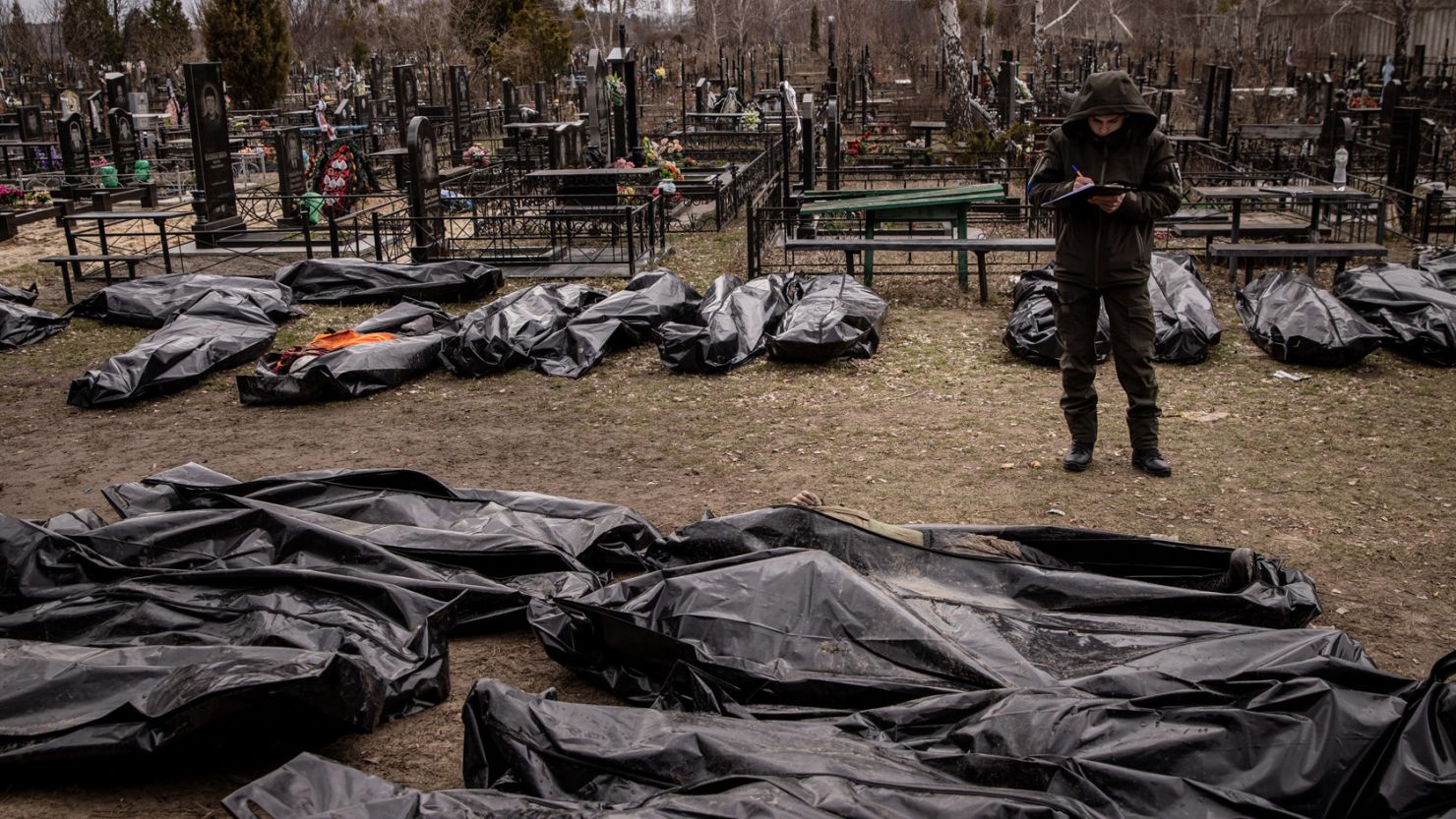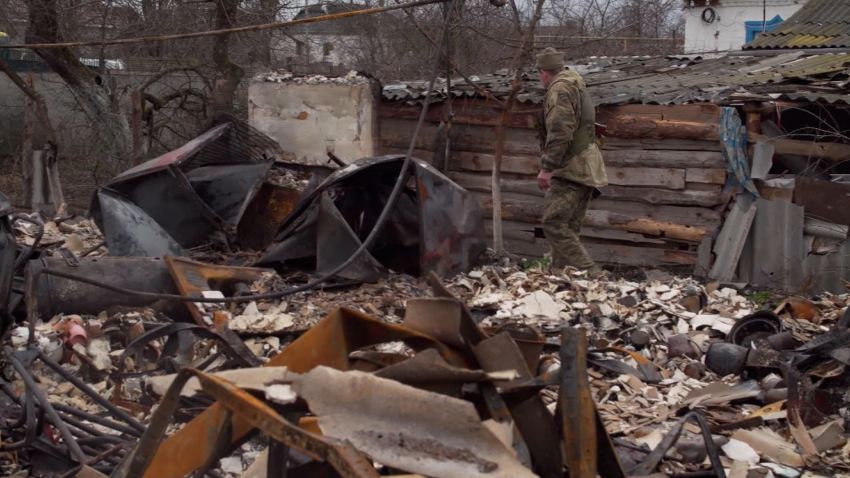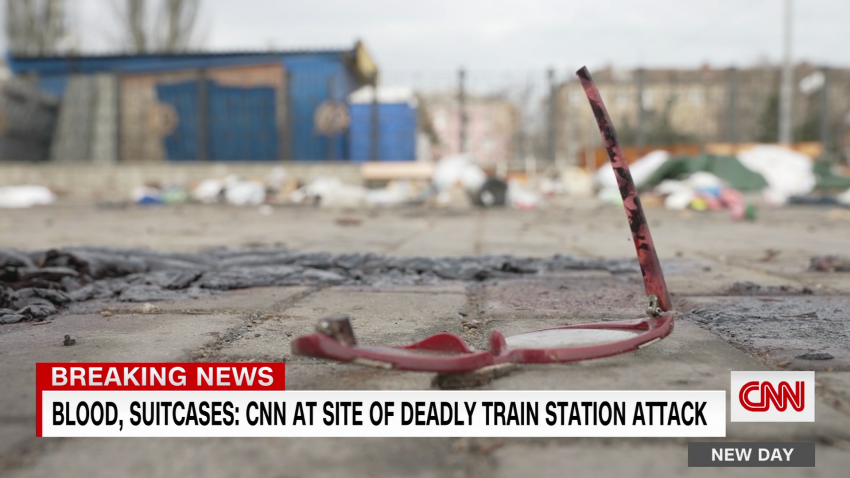This story contains graphic imagery.
Indiscriminate killings of civilians attempting to flee the violence. Victims found with their hands tied behind their backs. An attack on a maternity hospital, a theater turned shelter bombed. The list of atrocities and apparent war crimes allegedly committed by Russian troops in Ukraine gets longer by the day.
As Ukrainians reclaim areas previously occupied by invading Russian troops, evidence of the horrors of recent weeks is emerging from the rubble of shattered villages and towns. New victims are discovered on a daily basis. And those lucky enough to have survived the ordeal tell harrowing tales of kidnappings, rapes and torture.
Iryna Venediktova, Ukraine’s prosecutor general, said Monday that her office is investigating 5,800 cases of alleged Russian war crimes, with “more and more” proceedings opening every day.
Russia has denied allegations of war crimes and claims its forces do not target civilians. But CNN journalists on the ground in Ukraine have seen firsthand evidence of atrocities at multiple locations across the country.
Here is what we saw.
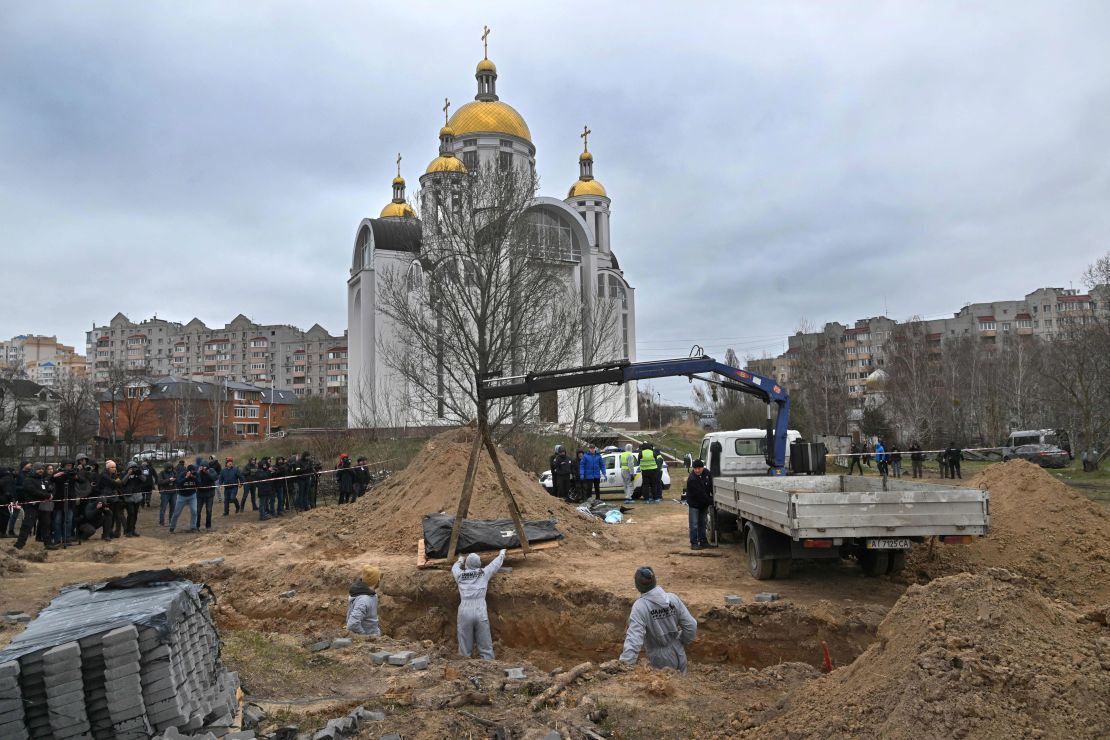
From Clarissa Ward in Staryi Bykiv
Novyi and Staryi Bykiv are two tiny specks on the map, separated by a small stream. Together they form a sleepy community of about 2,000 people that you’d expect few Ukrainians – let alone the Russian army – to be familiar with.
Katerina Andrusha told me that’s why her daughter Victoria decided to leave her apartment in the Kyiv suburb of Brovary and come back here at the start of the war; she believed it would be safer at home.
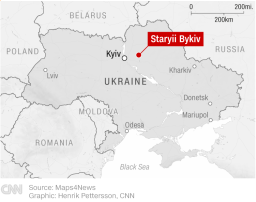
But on February 27, residents say Russian forces rolled into the neighboring villages, turned the local school into their base, vandalized and looted homes and terrorized the people here for five weeks.
On March 25, Katerina said Russian soldiers came to her home and took Victoria, claiming she had information about their forces on her phone.
Three days later, Katerina herself was taken captive. She said she was held in a cellar for three days. Blindfolded and terrified, she tried to find out what had happened to her daughter.
“They told me she was in a warm house and that she was working with them and would be home soon,” said Katerina.
She said she hasn’t seen Victoria since. As she spoke to us, Katerina’s gaze drifted skyward in disbelief. She showed us pictures of her daughter, a beautiful schoolteacher.
“We hope that she will get in touch with someone, somewhere,” she said.
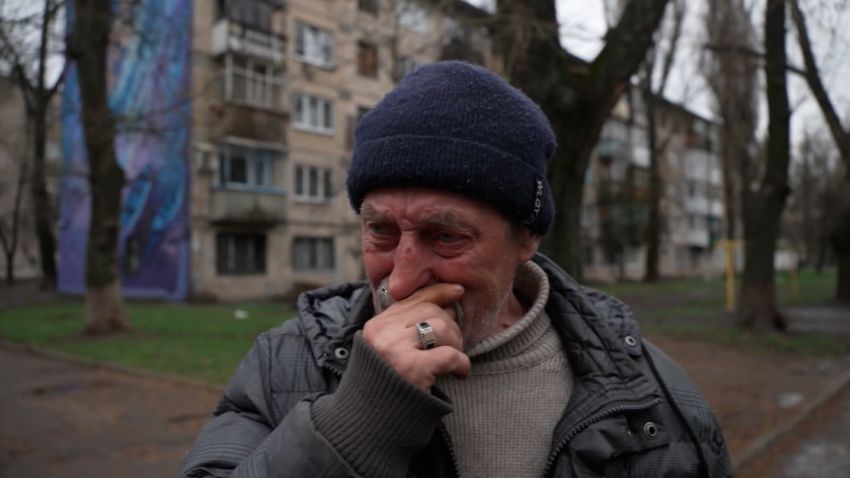
Just a few streets away, we met another mother. Olga Yavon’s grief was raw and all-consuming. She knew why we were there and the moment she came out to greet us, she broke down in tears.
Her boys, Igor, 32, and Oleg, 33, are among six of the village’s young men who authorities say were executed by Russian soldiers on February 27.
She told us Russian forces rounded them up after a bridge nearby was blown up.
The Russians kept hold of their bodies for nine days before dumping them on the outskirts of the village, with instructions to bury them quickly, she said.
“They were very good boys,” Olga said. “How I want to see them again.”
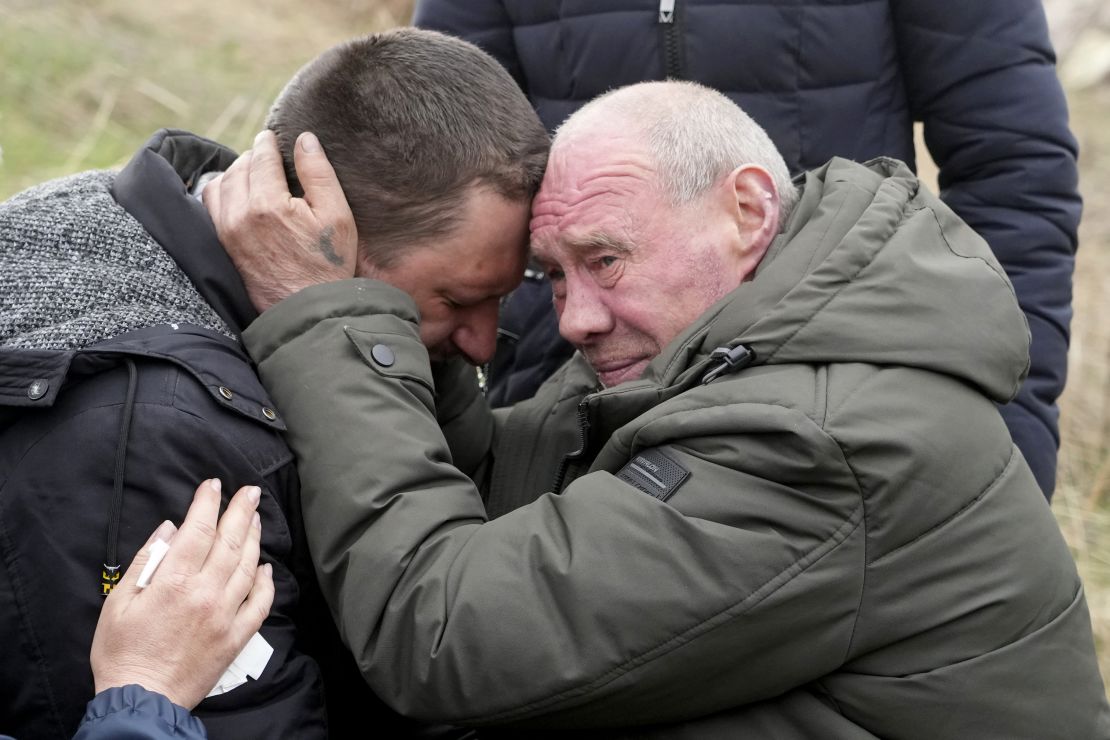
From Fred Pleitgen in Bucha
I have seen a lot of awful things in my career, but some of the things we were confronted with on the outskirts of Kyiv after Russian troops were beaten back by Ukrainian forces have been among the most harrowing.
In the suburb of Bucha we were among the first to reach a mass grave that residents dug while the place was under Russian occupation, because so many residents had been killed and longer burial ceremonies would have been too dangerous amid the shooting and shelling.
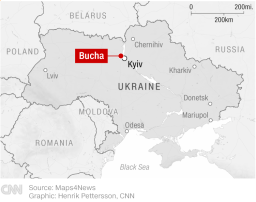
We saw half-buried bodies, legs and arms sticking out of the earth. We met one man who was sure his little brother was buried here; he broke down and could not stop crying. The neighbor who comforted him was also in tears.
These moments of heartbreak are difficult to witness – they make you want to cry as well.
Also in Bucha, we were led into a basement where five bodies had been found – the Ukrainians say the men had been executed by Russian troops. Some had their hands tied and gunshot wounds to the head or the heart.
You could still see the horror on their faces. It seemed like the dead wanted the truth of their violent death to be uncovered.
No matter how many bodies you see, you never forget a single one.
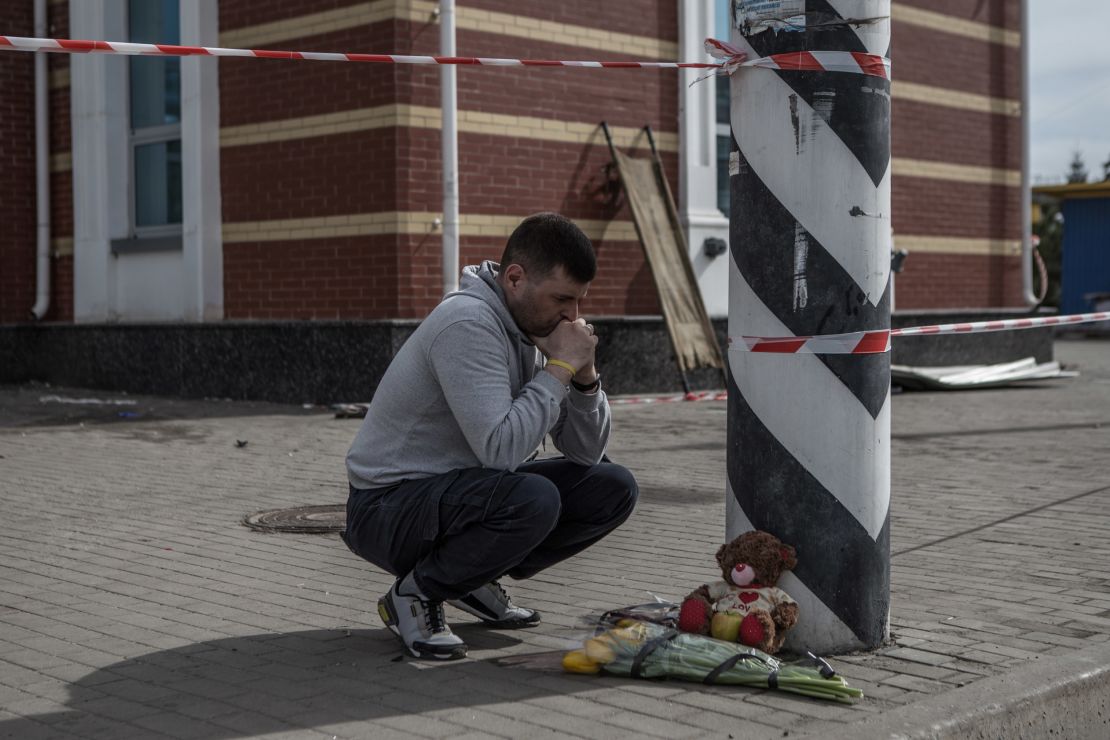
From Ben Wedeman in Kramatorsk
At 10:30 a.m. last Friday as many as 4,000 people in and around the train station in Kramatorsk were waiting to be evacuated when a missile exploded overhead, raining down chunks of metal. Shrapnel ripped through the crowd, which was largely composed of women, children and the elderly. The latest death toll is more than 50, with more than 100 injured.
When we visited the station 48 hours after the blast, we found the concourse still stained with blood, littered with the scattered possessions of the dead and wounded.
On one platform, we found a large pool of congealed blood in a shrapnel impact point with several false teeth nearby. Someone, probably an elderly person, must have been hit and killed there.
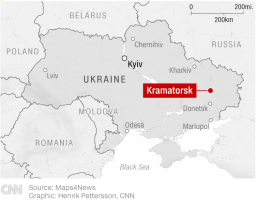
City officials believe Kramatorsk could be surrounded, besieged and pulverized by Russian forces if and when the much-anticipated offensive in the east gathers pace.
The mayor had been urging residents to leave, and prior to Friday’s strike around 8,000 people a day were boarding westbound trains. The evacuation effort had been publicly announced, with people from surrounding towns and villages urged to gather at the railway station in Kramatorsk, which was the major regional hub. There was nothing secret about it.
Russia has denied targeting the station, claiming the missile – a Tochka-U – is no longer used by Russian forces, and alleging that it was a Ukrainian missile that hit the station. Military analysts dismiss the claim.
Part of the missile crashed into a small park in front of the station. Someone, somewhere wrote on it in Russian “for the children.”
While tagging and writing slogans on missiles, bombs and shells is a very old tradition, it is not for certain what the intended message was.
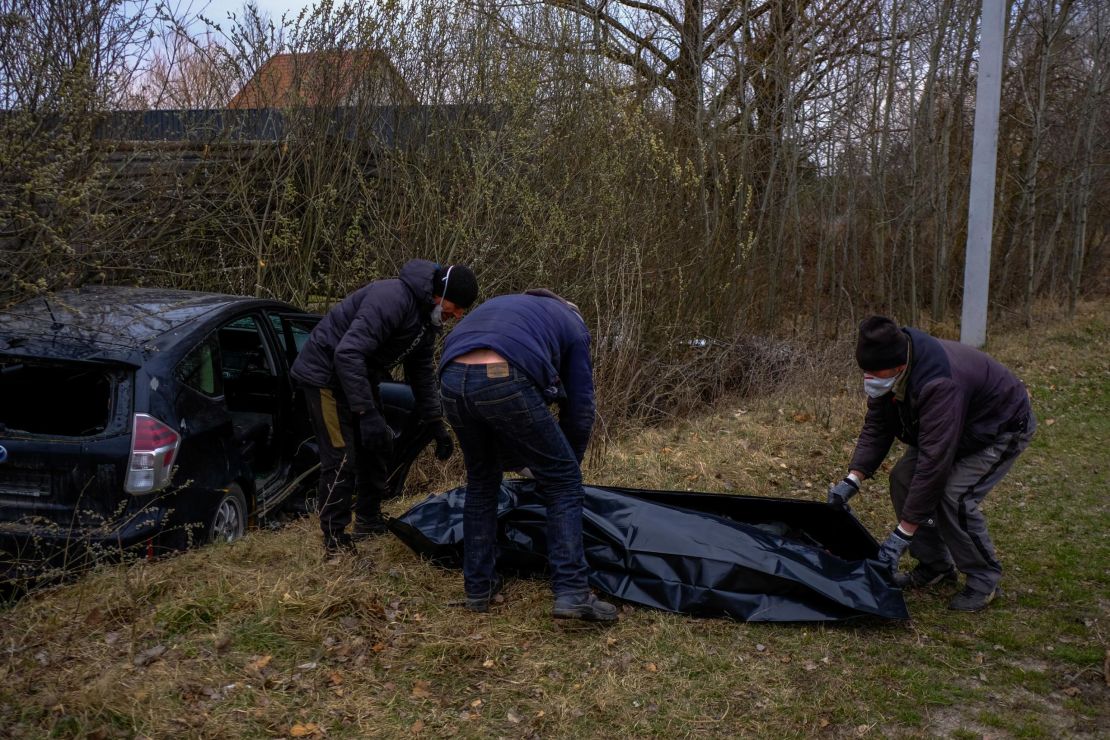
From Vasco Cotovio in Borodianka
The worst thing I have seen since arriving in Kyiv nearly a month ago would have to be the body of a man we were shown in a backyard in Borodianka, northwest of Kyiv.
We were led to the site by the owner of the house, who had fled town in the first few days of war. She returned as the invading troops withdrew, only to find her home had been ransacked by Russian soldiers.
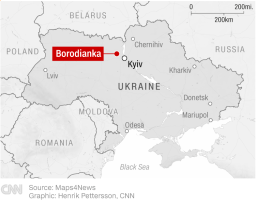
Behind her garden shed, she showed us a man, with a bag over his head, his hands tied behind his back and his trousers pulled down, exposing his underwear and heavily bruised leg. He had a gunshot wound to the head, and a single bullet case was still lying next to his body.
He appeared to have been tortured and executed by Russian soldiers, although we do not know for sure what happened to him.
By this time, we had already seen the now infamous mass grave in Bucha, but the image of that man has stuck with me – I find the individual more relatable than the collective. It is easier to compartmentalize, to dissociate a group from the humanity they were robbed of.
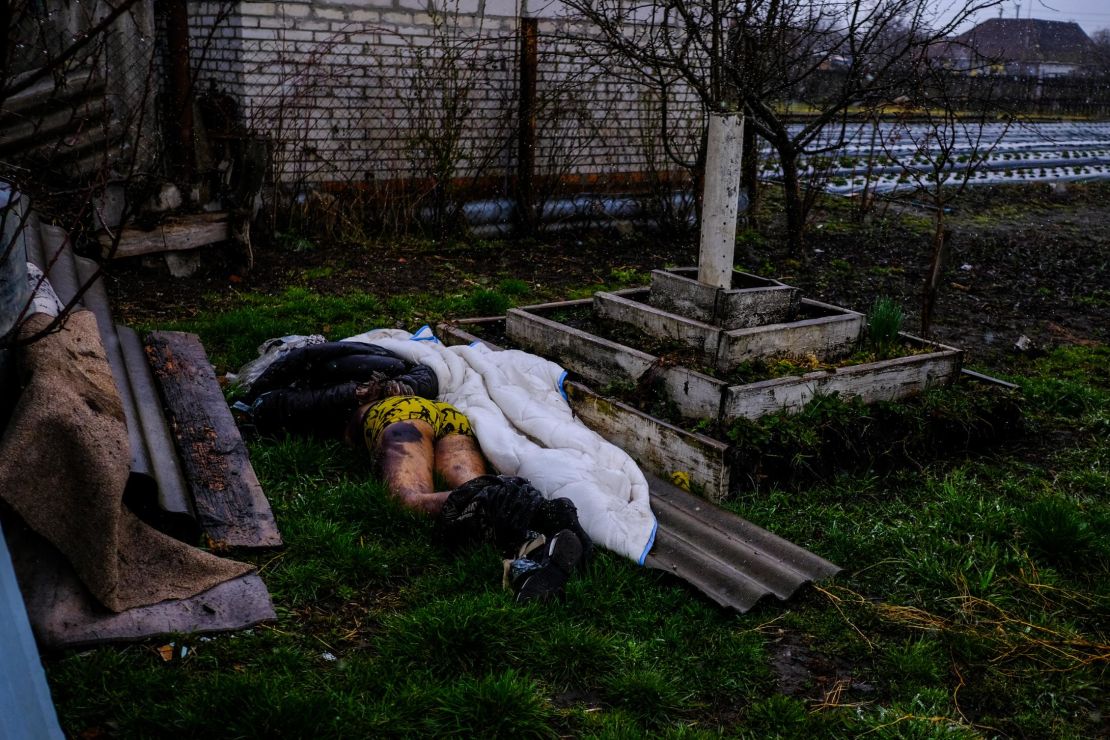
I keep thinking about that man and who he might have been.
Did he suffer? Did he have a family? What were his ambitions? What led him to that backyard? Did he fight back, did he protest against the Russian occupation? What if it had been me — or my brother, who was living in Kyiv when the invasion started?
This man is one atrocity too many.
And then you realize there are countless others, still waiting to be found, underneath some rubble, in a shallow grave or in someone else’s backyard.
